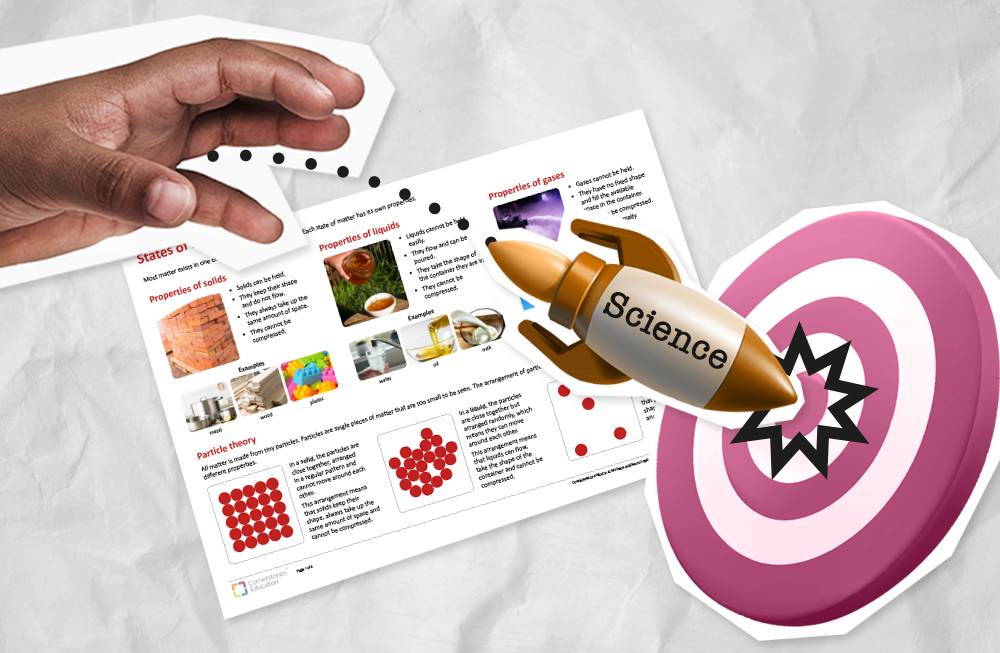Subject leadership in the primary science curriculum
Science is a core subject in the primary curriculum. It helps children to develop an understanding of the natural world and the processes that govern it. Science education at primary level should develop children’s curiosity, creativity and critical thinking skills.
The importance of science in primary education
The national curriculum sets out the knowledge and skills children should acquire in different subject areas at different stages of their education. As a subject leader for science, you should know the national curriculum requirements for the subject very well. You can explore the requirements for Key Stage 1 and Key Stage 2 from gov.uk.
Overall, the national curriculum for science in England is designed to provide children with a solid foundation in scientific knowledge and skills. It also develops critical thinking and problem-solving skills needed for children to succeed in further study, and both their personal and professional lives. As a science subject leader, you must ensure that your curriculum covers various scientific topics including the human body, animals, plants, materials, energy, forces and the environment. These topics should be taught through hands-on experiments, investigations and observations.
In addition to teaching scientific concepts, your curriculum must primarily focus on developing children’s scientific skills, including:
- making observations
- recording data
- prediction
- hypothesis testing
- experimentation
- data analysis and interpretation
- critically evaluating evidence
- making predictions based on evidence.
Children should also be encouraged to develop scientific attitudes such as curiosity, open-mindedness and a willingness to change their ideas in light of new evidence. Furthermore, for the knowledge and skills they are learning to have meaning and context, children need to understand how science has developed, its place in society, and the implications of scientific advances for individuals, communities and the environment.
Subject leadership
Leading primary science requires a deep understanding of the subject, the ability to inspire and motivate learners and the skills to lead a team of teachers to deliver high-quality science education.
Here are some critical strategies for leading primary science:
Develop a clear vision: As a science leader, it’s essential to have a clear vision for what you want to achieve regarding science education in your school. You should communicate this vision to your team and ensure it aligns with the school’s overall vision and goals.
Create a good quality, well-sequenced curriculum: It is crucial that you plan and lead an engaging, knowledge-rich and well-sequenced science curriculum that helps children to develop the scientific knowledge and skills they need to be scientifically literate citizens, even pursuing careers in science and technology in the future.
Provide training and support: Teachers may feel they need more confidence or the necessary skills to teach science effectively. Provide training and support to your team so they have the knowledge and skills they need to deliver high-quality science education.
Use enquiry-based learning: Encourage teachers to use enquiry-based learning approaches in their science teaching. This involves children actively engaging in the scientific process through hands-on activities, experiments and investigations.
Make science engaging and relevant: Use real-life examples and practical applications of science concepts to make science learning more engaging and relevant to children. This helps spark their curiosity and interest in the subject.
Foster cross-curricular links: Science can be integrated with other subjects such as mathematics, literacy and art. Encourage teachers to make cross-curricular links to help children see the relevance of science in other areas.
Celebrate science: Organise science events, competitions and exhibitions to celebrate and showcase children’s work. This can raise the science profile in your school and inspire them to pursue further study in the subject.
Define the learning goals: Determine the goals you want to achieve in each year group. This could include knowledge of scientific concepts, development of scientific skills and understanding of scientific processes.
Identify the scientific or disciplinary concepts: Identify the scientific concepts that you want to teach in each year group. This could include concepts such as living things, materials, energy, forces and the environment.
Develop teaching and learning activities: Lead and support teachers to develop teaching and learning activities that will help children to develop their scientific knowledge, skills and understanding. These activities should be hands-on and engaging, and should promote enquiry-based learning.
Create assessment tasks: Develop assessment tasks that will allow you to evaluate children’s progress and understanding. These tasks could include practical experiments, written reports or oral presentations.
Evaluate and adapt: As a subject leader, you will play a significant role in evaluating the effectiveness of the curriculum. This includes monitoring progress on an ongoing basis and adjusting the curriculum as necessary. Consider feedback from teachers and children, assessment results and teaching observations to refine and improve your curriculum over time.
Summary
Overall, leading primary science requires a strong commitment to the subject, the ability to inspire and motivate, and the skills to lead a team of teachers to deliver a high-quality science education.
Leading science can be a challenge. There is much to know, implement, organise and monitor, and it is important to play an active role in developing your own expertise. However, there is support if you need it.
Maestro now offers subject leaders the materials, tools, resources and support to lead science well while reducing the strains, stresses and workload of leading such an important subject. If you are looking to improve your science curriculum or need support for leading science in your school, then read more about how we help from the button below.



